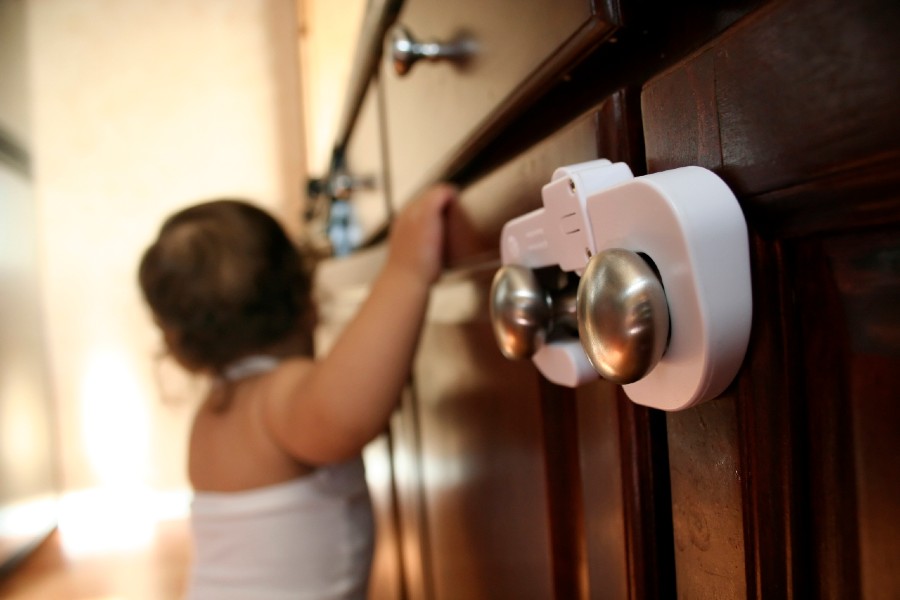
A poison is any substance that is harmful if too much is eaten, inhaled, injected, or absorbed through the skin. Poisoning remains the top cause of injury death in the U.S., and while the main cause of unintentional poisoning death is opioid overdose, almost any substance can be poisonous if used the wrong way, in the wrong amount, or by the wrong person. Common substances about which people call Poison Control include cosmetics, vitamins, hand sanitizers, pesticides, opioids, electronic-cigarettes, prescription drugs and topical medications. In 2018, there were 631 deaths and 168,410 nonfatal emergency department visits among U.S. children ages birth to 18 due to poisoning.[i] In that same year the 55 U.S. poison control centers provided telephone guidance for nearly 2.1 million human poison exposures; children younger than 6 years were responsible for nearly half of those cases.[ii] One injury-related outcome of the COVID-19 pandemic has been a sharp increase in poisoning exposures among children to household cleaners and hand sanitizers. This may be a result of the simultaneous increase in the presence in homes of both children and these substances.
In this webinar, Dr. Kelly Johnson-Arbor of Georgetown University Hospital shared the most current data on poisonings among U.S. children, including COVID-19-related trends, described risk and protective factors and discussed challenges to preventing poisonings. Krista Osterthaler of the National Capital Poison Center, demonstrated the recently-developed webPOISONCONTROL, a free online tool and app that provides instant triage recommendations and follow up for acute, unintentional exposures, bringing the expertise of poison control to people where they want it – online. Bonnie Kozial, of the American Academy of Pediatrics and an active member of the CSN-A, moderated the webinar.
ABOUT OUR SPEAKERS
Kelly Johnson-Arbor, M.D., is co-medical director of the National Capital Poison Center and the medical director of hyperbaric medicine at MedStar Georgetown University Hospital in Washington, DC. Dr. Johnson-Arbor is board certified in Emergency Medicine, Medical Toxicology, and Undersea and Hyperbaric Medicine. She maintains medical toxicology and hyperbaric medicine clinics at MedStar Georgetown University Hospital, is an associate faculty member of the MedStar Institute for Quality and Safety and is active in professional medical societies, having served as secretary/treasurer of the American College of Hyperbaric Medicine since 2017. Dr. Johnson-Arbor is an instructor for introductory hyperbaric medicine courses and has authored multiple published medical articles on toxicology and hyperbaric medicine related topics.
Bonnie Kozial, BA, is a 20-year veteran of the American Academy of Pediatrics (AAP) and has dedicated 16 years of that time to injury prevention. Ms. Kozial manages the AAP Council on Injury, Violence, and Poison Prevention, overseeing policy development, advocacy, professional and parent education, and translating policy into practice in both clinical and nonclinical settings. Bonnie feels privileged to work alongside some of the most intelligent and committed pediatricians to be found in any field and enjoys turning their wisdom into resources that help pediatricians and families keep kids safe and well. Bonnie is an active member of the Children’s Safety Network Alliance (CSN-A).
Krista Osterthaler, MPH, is the Director of National Strategic Partnerships for the National Capital Poison Center in Washington, DC, the nonprofit organization that developed webPOISONCONTROL. Krista began her career as a high school science teacher, joining poison control as a poison prevention educator in 2011. Ms. Osterthaler has served as a Vice President for the American Association of Poison Control Centers, Chair of the National Poisoning Prevention Council, and Director of Programs and Research at Safe Kids Worldwide.